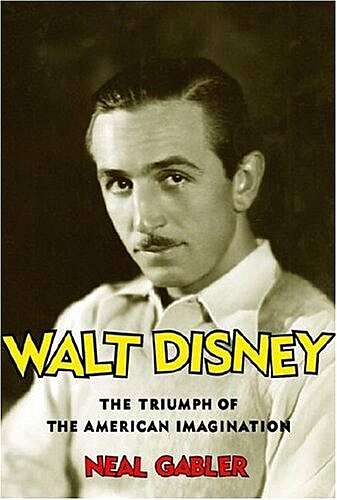
My highlights from the book:
1. He was a doting father who sheltered them from his own fame. He enjoyed telling how six-year-old Diane had asked him if he was Walt Disney. “You know I am,” he answered. “The Walt Disney?” she questioned. When he chortled that he was, she asked for his autograph. He would chase the girls around the house, cackling like the witch from Snow White, or he would twirl them endlessly by their heels, “for hours and hours,” Diane would say, or he would stand in the swimming pool and let them climb to his shoulders. “I thought that my father was the strongest man in the world and the most fun,” Diane recalled. At night he read to them. And on the weekends he would take them either to Griffith Park to ride the merry-go-round or to the studio, where they would follow him as he snooped about, or pedal their bikes around the empty grounds while he worked. “They used to love to go with me in those days,” Walt would reminisce. “And that [sic] was some of the happiest days of my life. They were in love with their dad.”
2. Part of Walt’s secret was that in insisting on quality from individuals of whom it had never been required, he inspired commitment.
3. “Don’t be afraid to admit your ignorance,” Doc Sherwood told him, a philosophy that Walt, who was always inquisitive, said “lasted me a lifetime.”
4. “If you want to know the real secret of Walt’s success,” longtime animator Ward Kimball would say, “it’s that he never tried to make money. He was always trying to make something that he could have fun with or be proud of.”
5. Walt Disney seldom dabbled. Everyone who knew him remarked on his intensity; when something intrigued him, he focused himself entirely as if it were the only thing that mattered.
6. Walt insisted that the business community had to expand its horizons rather than concentrate narrowly on immediate returns.
7. When a business associate asked him if he’d won the battle, Walt snapped, “You never win with bankers.”
8. He would say that you had to be careful whom you trusted; that he had learned that you had to control what you had or it would be taken from you; that he had seen how duplicitous the business world could be. He said he had learned all these lessons and would never forget them.
9. Disney reconceptualized the amusement park as a full imaginative experience, a theme park, rather than a series of diversions, and just as his animation revised graphic design, his park eventually revised urban design.
10. The eternally optimistic Walt Disney, who had ridden out crisis after crisis, had one terrifying thought: he would have to begin all over again.
Learn from history's greatest entrepreneurs by listening to Founders. Every week I read a biography of an entrepreneur and find ideas you can use in your work.
Learn from history's greatest entrepreneurs by listening to Founders. Every week I read a biography of an entrepreneur and find ideas you can use in your work.